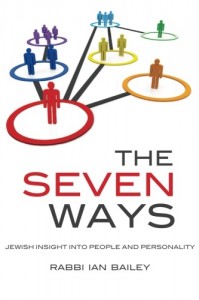Don’t Be like Pharaoh!
Vaerah Anti-Pharaoh-Accept Influence
Moshe pushes Pharaoh to stop being obstinate and free Israel. This is good place to discuss the importance of accepting influence from others.According to leading marriage expert John Gottman (1999) a key component of a lasting and fulfilling marriage is accepting influence from one’s spouse. Because women tend to accept influence, men in particular should do self-checks to make sure they do this. Even in homes where the man has the most influence in decisions, he must still convey honor and respect for his wife during decision making in order for there to be marital happiness (Ibid.) [1].
homes where the man has the most influence in decisions, he must still convey honor and respect for his wife during decision making in order for there to be marital happiness (Ibid.) [1].
The ideas that Gottman and others have found through scientific research have been part of the Jewish tradition for millennia [2]. I will bring one example: “Whoever is arrogant, even the members of his household will not accept him” [3]. This means both the members of his household and, according to Rashi, a man’s wife.
 Even outside of the marriage realm it is important accept influence and respect others. When people speak to us they want some level of validation and, often, they can influence us for the good! We should not solely focusing on our opinions and wait for our turn to speak in the conversation.
Even outside of the marriage realm it is important accept influence and respect others. When people speak to us they want some level of validation and, often, they can influence us for the good! We should not solely focusing on our opinions and wait for our turn to speak in the conversation.
[For more on improving communication in your relationships order The Seven Ways ]
Work on validating others’ statements, even if you don’t agree. Work on letting people influence you through discussion, even if you feel your point needs to be included. Pharaoh[4] is the archetype for obstinate behavior-don’t be like Pharaoh!
–IB [1] My goal here is not to malign one gender, we all know men and women who do all of the above behaviors; my goal is to highlight the importance of accepting influence from others. [2] A virtually exhaustive compendium of Jewish sources and a thorough explanation of these ideas can be found in The Garden of Peace: A Marital Guide for Men Only (2008), though many other sources come to mind. There is a counterpart book Women’s Wisdom (2010) for women. [3] Bava Basra 98. [4] Pharaoh and all the predecessors and successors who bear the same name are brought numerous times in the midrash as being obstinate or as paradigms for the foul character trait. See Shemot Rabbah 20:1, for example. References: Gottman, J., Nan, S. (1999) The Seven Principles for Making Marriage Work. New York: Crown. Arush, S. (2008). The Garden of Peace: A Marital Guide for Men Only. Jerusalem: Chut Shel Chesed Institutions. Translated by Rabbi Lazar Brode.